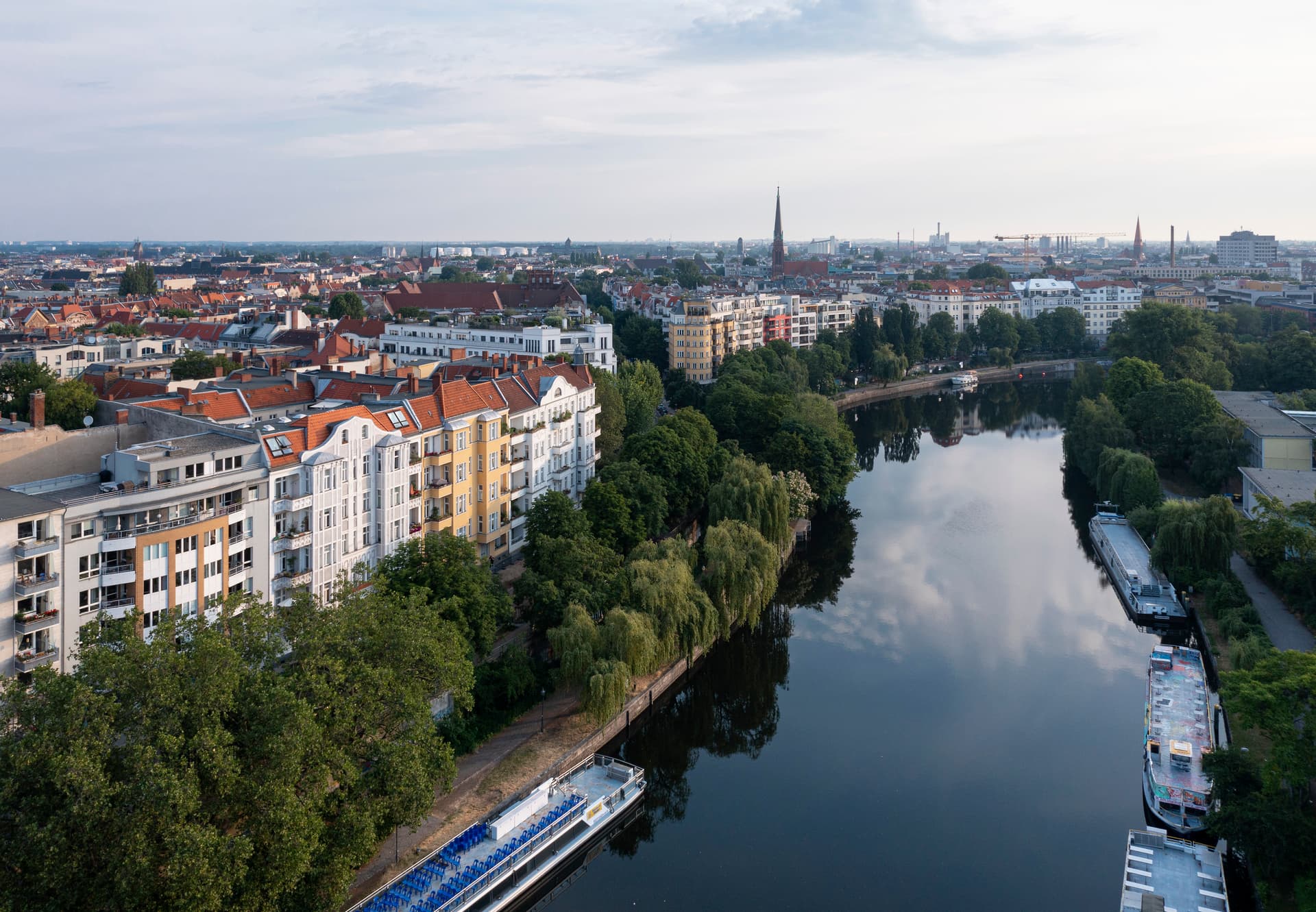Mortgages in Germany
Can I get a mortgage as an international buyer?
So-called “Steuerausländer” (tax foreigners) or “Gebietsfremde” (non-residents) can apply for a loan from a German bank. Non-residents and tax foreigners are – whatever their nationality is – all those persons who are not liable to pay taxes in Germany.
The amount you can borrow, and your achievable interest rate, will depend on many things – like personal income, employment status, age, country of residence and nationality.
Since the “Wohnimmobilienkreditrichtlinie” (Mortgage Credit Directive) passed into law in March 2016, many banks have switched to financing tax foreigners only if they live within the EU and earn their salary in euros. For people who live and work in Sweden, for example, this makes real estate financing in Germany very difficult, but not impossible.
Do not fear! Even though the choice of possible lenders, financing products, and interest rate conditions are limited, experience shows that non-residents and tax foreigners can obtain financing with an LTV of up to a maximum of 70 percent of the purchase price. However, the amount of equity always plays a role, of course. It depends – as so often – on the personal and financial situation of the applicant for the mortgage.
We find that the tipping point is usually 54% LTV which allows for the best interest rates, and the best chance of successfull applications.
The experienced Hypofriend advisors will be happy to help to advise you in detail about your options.

Can I get a mortgage in Germany as an expat?
The question regularly arises whether people without German citizenship can buy a property in Germany and thus fulfill their dream of owning their own home. The good news: Yes, they can!
However, there are some limiting factors that restrict the maximum loan amount and the number of German banks that can provide you with financing. In this article, we give a general overview of the financing possibilities depending on the residence permit in Germany.
If you need help to find the optimal mortgage feel free to contact Hypofriend. The Berlin-based online mortgage advisor will navigate you through the whole process and help you understand your mortgage options. At Hypofriend they use superior technology to predict bank decisions and analyze your optimal finance strategy. Their best-in-class expert advisors walk you through the entire process to get you the best mortgage that is right for you.
How much money can I borrow from the bank?
Before we look at the different residence permits and how they influence how much you can borrow, we would like to briefly discuss the most important basics of real estate financing in Germany. Therefore, we will focus on the so-called “Beleihungsauslauf” (Loan-to-Value, LTV), which influences how much money the bank will provide for the mortgage and how much equity you have to bring into the financing.
The Loan-to-Value, or Loan-to-Value-Ratio, indicates the ratio of the loan to the value of the property. However, each bank calculates the LTV according to its own criteria. The basic rule is that banks do not use the price the seller is asking for the property, but the value of the property. This is the so-called “Beleihungswert” (mortgage lending value or collateral value). In other words, the mortgage lending value does not have to be equal to the purchase price. German banks are quite conservative and risk-averse when it comes to estimating property values. Therefore, they sometimes value real estate 10-30% less than the real estate price.
The LTV indicates the ratio between the loan taken out and the mortgage lending value and is expressed as a percentage. The bank uses this percentage to determine the interest rate for the loan. The lower the LTV the less risky a bank considers a loan. Therefore, they offer you a better interest rate for a loan with a lower LTV. You can reduce the LTV by increasing the down payment.
Calculate your individual LTV
When purchasing a property with a mortgage, you will often hear the term LTV, meaning Loan to Value. This is the percentage of the property price that will be the mortgage, which is calculated by how much money you can put into the investment. You can work out your personal LTV using the tool below:
Your individual LTV
67%
0%
100%
Your LTV is below the LTV Cliff of 67%, which increases the likelihood of getting approved by a German bank.
Loan-to-value = (loan amount after deduction of equity x 100) / mortgage lending value.
How does the residence permit affect the mortgage?
As an EU citizen, you have the right to come and work in Germany without a visa. In addition, you will be legally equal to German citizens in almost every respect. For this reason, authorities do not issue a residence permit. Your identity card or passport is sufficient to prove that you are allowed to live and work in Germany.
Unlike citizens from non-EU countries, people from the EU can purchase real estate in Germany without any problems if they work and live here. Banks then assess the credit risk similarly to German citizens, and they will finance a 100% LTV.
For non-EU residents with a temporary residence permit (e.g. a Blue Card EU), the bank applies higher risk assessments. This naturally also has an impact on the LTV. As a non-EU citizen with a temporary residence permit such as a Blue Card EU, you can expect banks to finance a maximum LTV of 90%. In addition, unfortunately, there are only a few banks that generally accept such a risk and qualify non-EU residents for their mortgage products.
How can I improve my chances?
One way to increase the number of German banks and a higher LTV (up to 100 %) a temporary resident qualifies for is to apply for a “Niederlassungserlaubnis” (permanent residence permit).
Residents who have had a temporary permit for at least 5 years can directly apply for a permanent residence permit with the “Ausländerbehörde” (Foreigners' Registration Office). In addition to having your primary residence registered in Germany and having a sustainable income, you will also need to show proof of sufficient German language skills (B1) to get approved for a permanent residency permit.
An EU Blue Cardholder may get a permanent residence permit when they have been in Germany for more than 33 months or with good German skills only 21 months.
A non-EU foreigner who graduated from a German University or comparable institution in Germany may get a permanent residence permit when they have held a work permit for at least 2 years after graduation.
If you are married to a German national (i.e. someone with German citizenship) or are a parent to an underage German you can have a permanent residence permit issued to you when you have been in Germany for 3 years and are still living with the German spouse or child.

What documents are required?
German banks are very meticulous when it comes to paperwork. They will require you to submit both personal documents and property documents. Here’s the list of documents you will need to have ready if you want to apply for a German mortgage:
General documents for everybody
If you are an employee, you also need to submit your payslips for the last three months and your income tax certificate or your payslip from last December. If you are a freelancer or self-employed business owner, you can read about the special documents you need to submit here.
In addition to the personal documents, you will also need to provide specific documents about the property you are looking to buy.
Property documents
If you buy a new-built property you also need a description of construction ("Baubeschreibung") which will be provided by the project developer. If you buy an existing property you have to provide an “Expose” with current photos of the property.
How long does the application process take?
The general processing time for a mortgage application depends on many factors. For example, how quickly all the documents for the bank are ready or whether there are still open questions to be clarified.
Once the mortgage application has been submitted to the bank, it depends on the bank how quickly the financing request is processed. For most German lenders, it is still a manual and human process to check and verify the application. Direct banks like ING and DKB tend to process applications within 2-4 business days, while other banks like Deutsche Bank or Sparkasse tend to process between 5-10 business days. In some cases, it may take longer due to higher demand or lower availability of loan specialists.
In cooperation with Hypofriend.
Have you got questions? Get in touch with us!
We would be delighted to assist you in your property search, and to answer any questions you might have. For a quick chat or a full consulation, please get in contact using the links & information below. We look forward to speaking with you!
Michael Totman Director International Sales Advisory office ACCENTRO Berlin Phone: +49 (0)30 / 887 181-41 E-Mail: mail@accentro.de
Our hotline is available Mo to Fr, 9am to 6pm (CET)
